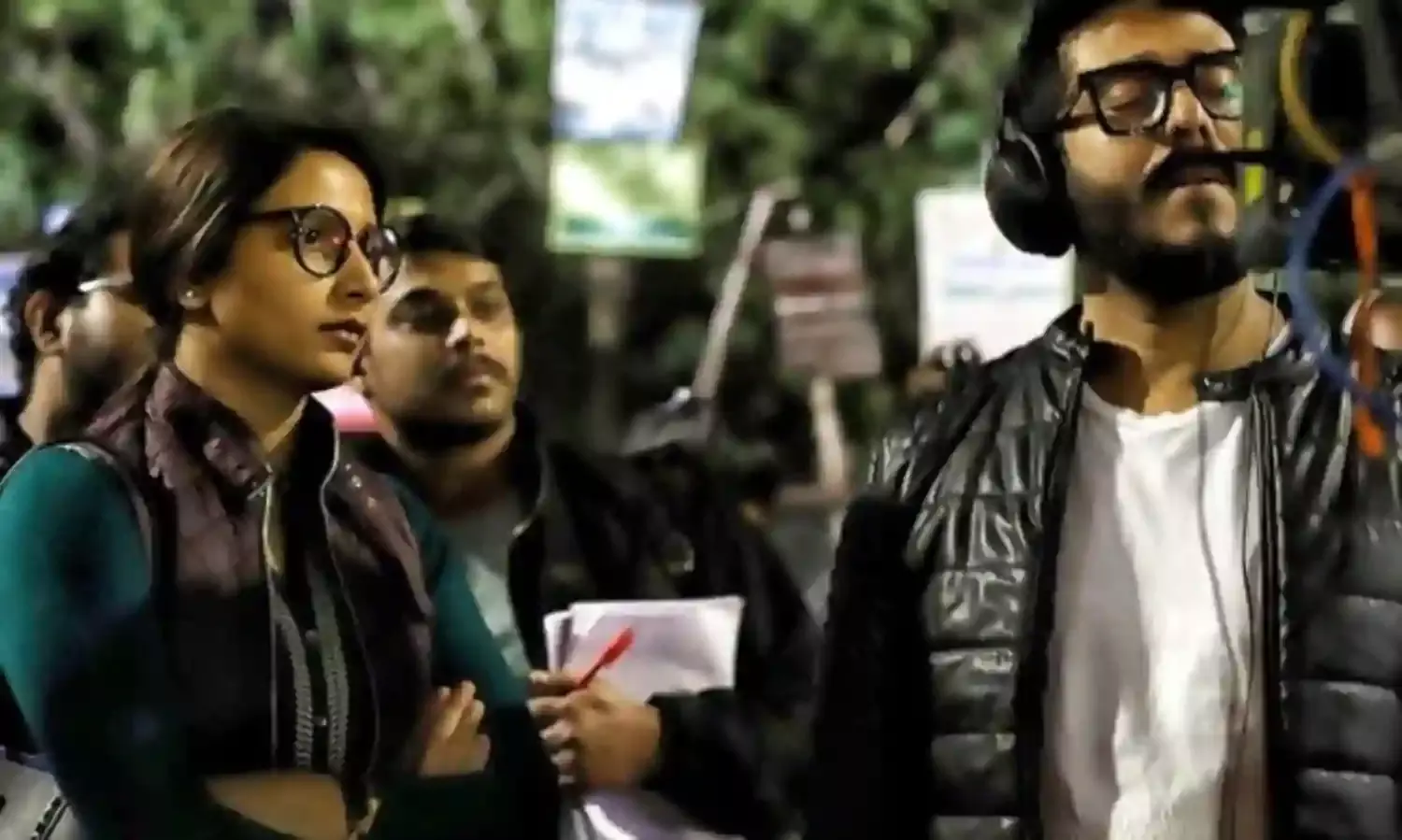Habgi Gabji, a Difficult Must Watch Film on Gaming Addiction
Gaming Disorder is characterised by impaired control;

Every technical and scientific invention brings along with it, associated socio-psychological problems, especially for children. Parents, knowingly or unknowingly, contribute to the child’s addiction to cartoon shows and videos on television or to the Internet.
This happens because many urban middle-class couples have just one child, and both partners have jobs to attend to. The child is left with a nanny. As the child begins to grow, the parents hand him a cell phone to play with, not knowing it may bring calamity to the family and destruction for the child.
Bengali filmmaker, Raj Chakraborty, famous for churning out commercial hits and his very different adaptation of Sarat Chandra Chatterjee’s Parineeta, has made Habgi Gabji which shows what can happen when an eight or ten-year-old boy gets addicted to violent mobile games, till it becomes a major psychological disease.
The film hits the problem straightaway and does not believe in “subtlety.” This makes it a very violently aggressive film on the one hand which may frighten part of the audience, and on the other, it’s a bold attempt to graphically show the problem.
The child, Anish or Tipu as he is called at home, slowly gets addicted to the mobile his father gave him to cope during the day when the parents are at work. However, the boy is glued to it round the clock.
We see the little Tipu trying to hit an imaginary ball at home. The minute his father is back from work, he begs him to join him. The father, Aditya (Parambrato Chatterjee) excuses himself and the little one feels sad. The boy’s addiction to the mobile phone begins to affect his work at school. The principal beckons the mother and warns her but she is completely at sea.
The film shows how gradually but surely, the child, now around eight years old, has become asocial, does not have friends or hobbies, does not study and is constantly on his mobile. Tipu’s addiction to the mobile creates an alternative world away from the real world he lives in. So much so that he begins to identify and becomes a part of this virtual world believing it to be real.
The real world does not exist for him, soon he cannot recognize his own parents and treats them with violence and aggression. He tries to beat his father and breaks the television set when the smartphone is taken away from him. The mother Ahana (Subhasree) is more worried than the father is, but they too, are on the verge of a breakdown themselves. The parents failed to recognize their child’s problem till it was just too late.
The worried parents take him for counseling to a psychiatrist referred to by a doctor friend. Surprisingly, this does not happen in a professional clinic but in the drawing room of the psychiatrist who talks to Tipu but without much success. He suggests they go on a holiday to the hills. Something terrible happens and the couple rush back to Kolkata to admit Tipu in a nursing home. This is where the film begins and returns to in the end, bringing it to a happy closure which, however, seems quite forced.
The highlight of Habgi Gabji lies is the superlative performance by Samantak Dyuti Maitra who as Tipu, has the varied expressions on his face. The near-lightning shows the changes in his personality well. However, what impact such a role might have had on the boy’s mind in real life needs to be seen.
Could playing the role of a mobile game addict on screen spill over into his life off screen? This is a question that needs exploration. Is there a follow-up on child actors who play difficult roles not really fit for them to play? No one knows the answer.
Parambrato as the very ambitious father and Subhasree as the upwardly mobile mother are quite good. But the script makes them so gullible that one walks out of the film feeling that they, as parents, should have taken greater care of their only child much before he landed up in the ICU of a hospital.
There are songs too, which are superfluous, but do not disturb the narrative in any way. The editing is not smooth and the sound design is too generous in the decibels department, but that is what the film’s subject demands.
The problem with Habgi Gabji lies in that the script, as it goes on and on about the acceleration of the disease Tipu falls victim to without laying emphasis on its prevention and cure. There are too many violent scenes and sounds, instead more space should have been given to the prevention and cure of the illness. As a film, it leaves much room for aesthetic improvement but as a social message, it makes room for a lot of discussion and debate.
Before the end titles begin to scroll, the screen gives us an account of real-life crimes, mainly in India, committed by mobile and internet game addicts. Here are some examples: A 15-year-old Bhiwandi boy allegedly stabbed his elder brother to death for scolding him for playing PUBG. A 16-year-old boy killed his cousin in Nagaur, Rajasthan to pay off debts he amassed playing online games.
Nearly 41 percent of India's population i.e. around 55 crore people are below 20 years of age, which means that online gaming addiction will ruin an entire generation. Last year, the WHO defined Gaming Disorder as a pattern of behaviour characterised by impaired control over gaming, increasing priority given to gaming over other activities and, continuation or escalation of gaming despite occurrence of negative consequences.

